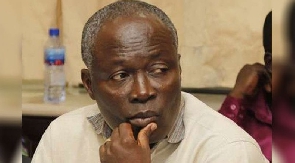After two decades of legislative endurance, the Ghana Health Service and Teaching Hospital Act 525 of 1996 is set to undergo reforms with a focus on devolution of health service delivery using the local governance structures as a vehicle. Proponents of the Bill cite flaws in the Local Government Service Act, 2003 (Act 656) in addition to failure of adhering to a constitutional provision [article 240 (2) (d) of the Constitution] as the underlying causes of the current situation of centralization of the health system administration and management.
Increasing complexity of health care issues as the years go by warrants that health-related legislative frameworks and structures also undergo reforms to meet the emerging health needs of the population. The need for a wider, transparent, multi-stakeholder engagement processes, particularly, when it has to do with health is overwhelming since there always exist an element of team-based effort central to the patient care process itself.
A draft copy of the Health Bill circulating in the healthcare community however seems to portray an unsettling picture regarding the assignment of the numerous administrative and managerial positions of the public healthcare management system currently under development. Contained in the Bill are old-fashioned clauses seeking to legislate almost all the top purely administrative roles as the sole preserve of dentists and medical practitioners—a move indicative of an awkwardly remarkable shift away from best practices of healthcare management functioning in advanced countries (Europe and America).
For example, the Part 3 of the Health Bill, section 68 (1), looking to establish public teaching hospitals states: “There shall be appointed by a Board of a Teaching Hospital a Chief Executive of the Hospital who shall be a medical or dental practitioner with the requisite managerial skills and training.” This a strange drift away from the existing legislative framework for teaching hospitals which makes the qualifications required for the Chief Executive position—also the Chief Administrator of the teaching hospital—liberal, a stance wielding the potential to stir leadership spirit among all health professionals, both clinical and administrative staffs alike: “There shall be appointed by the Board a Chief Administrator of the Hospital who shall be the Chief Executive…responsible…for the day-to-day administration of the hospital,” states the existing Act 525.
In the past—1930s to 50s—advanced countries had their hospitals led by physicians; today things have rightfully changed. The new Health Bill, however, if left in its current form will reverse the trend, straddling Ghana’s healthcare management system to the shackles of antiquity. According to a 2009 study in the journal Academic Medicine, of the 6,500 hospitals in the US, only 235 are run by physician administrators. The Ghana Catholic Health Services, operating the highest number of faith-based medical institutions have positions of hospital managers occupied by priests and nuns who may not necessarily even be health professionals. Till date, no robust empirical evidence exists to lend credence to the notion that physician CEOs are better suited for hospital management jobs than their non-physician counterparts.
Vast differences exist between practicing medicine at a patient bedside and leading an enterprise as a hospital manager. Becoming a successful hospital CEO has never been an attribution of a background in medical degree. Hospital management requires skills necessary to confront the complexities of health care management and these healthcare management skills are certainly not innate to the dentist or medical practitioner alone.
Indeed, any health professional with additional knowledge, skills and credentials in Health Care Management, an entire discipline on its own, should be expected to perform in such an executive position. Restriction of this highly executive administrative position of hospitals to the physician by the architects of the Health Bill—who by the way are most likely to be past and active physicians in administrative positions of the Health Ministry--gives a misleading impression that such professional groups possess superior effective, efficient decision-making and leadership abilities to improve the quality and access to healthcare at appropriate cost compared to their non-physician counterparts in the health care community: pharmacists, biomedical scientists, nurses, biomedical engineer, health services administrators etc.
The Health Bill in its present state beyond failing to reflect a sector-wide stakeholder involvement also smacks of intentions to achieving monopoly and a stranglehold on all managerial roles of Ghana’s health sector by a subset of care providers through covert operations.
Enacting provisions to make managerial and administrative positions of Ghana’s health system liberal, providing a level playing field to all healthcare providers is beneficial on several counts. The current dismal doctor-to-patient population ratio of 1:13,000 suggests that more dentists/medical practitioners are needed in the consulting rooms of hospitals. Thus the Health Bill’s aspirations need to be fashioned along the paths of finding solutions to this pressing challenge rather than seeking to compound it. Besides, it will stimulate the interest of every health professional involved in the care delivery process to professionally develop him/herself—a potential healthy development for the health sector and the country’s human resource base in general.
The Health Bill is still at developmental stages. It is important for the country’s legislators and the Health Minister to critically examine the provisions contained in the Bill from an angle neutral and immune to sectarian interests. Broad sector-wide stakeholder involvement is as central to achieving this as transparent legislative enactment processes.
By: Frank Kumi, Editor, Pharmaceutical Society of Ghana (PSGH)
Contact: editor@psgh.org
Click to view details



Opinions of Monday, 16 May 2016
Columnist: Kumi, Frank


















